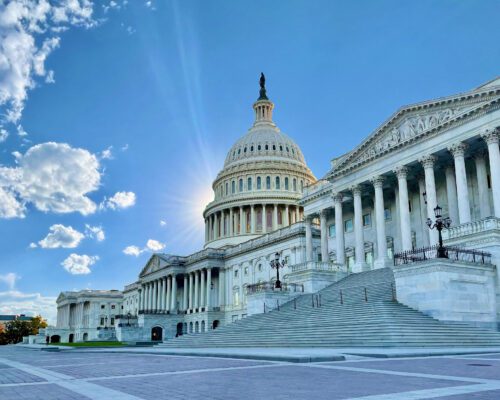The peaceful transition of power from one chief executive to another is one of the most enduring and cherished legacies of the American government. But it’s also a complicated process. There is a lot that has to happen between Election Day and Inauguration Day.
Here is a brief outline of some of the steps that have to be taken in the transition from President Trump to President Biden.
Presidential campaigns usually create a transition team during the summer before the election. The Presidential Transition Act of 1963 and the Presidential Transition Enhancement Act of 2019 authorize funding for pre-election activities and support. But after the election, the president-elect is authorized to receive additional funding to pay for his staff, secure office space, and pay for other expenses. (The President’s FY2020 budget request included $9.62 million in funding for the transition.)
Pre-election transition activities continue until the General Services Administration (GSA) officially declares the winner of the presidential election through what is known as ascertainment. Although President Trump disputed the election results on social media, GSA ascertained President-elect Biden as the winner of the 2020 election on November 23. Ascertainment allows the transition team to begin a broad range of official activities, such as getting guidance from the National Archives and Record Administration on preserving presidential records.
Around that time, the transition team will also create agency review teams, which as the Center for Presidential Transition explains, are responsible for “collecting information about the unique roles and responsibilities of each major department and agency of the federal government, and providing information that is relevant, useful and important to the new administration.” Presidential transition team members can also begin receiving security clearances, classified information, as well as access to government offices and staff.
The transition team also selects the top 50 Cabinet appointees and key White House personnel, develops a policy implementation plan, budget and management agenda, sends intended Cabinet agency appointments to the Senate, and determines how to fill roughly 4,000 politically appointed positions—including more than 1,000 jobs requiring Senate confirmation.
They will also begin to draft new executive orders so that they can be implemented as soon as the president-elect takes office, and work with Office of Management and Budget (OMB) career staff to develop a “shadow” presidential budget aligned with the president-elect’s top policy priorities.
The Presidential Transition Act requires the Trump administration to provide President-elect Biden with a classified summary of the nation’s national security threats and major military or covert operations. The briefing is generally given daily during the transition period. The law also requires the Trump administration to host interagency emergency preparedness and response exercises. Around mid-January, the transition team submits agency review reports and briefs incoming agency heads, prepares a Cabinet orientation/retreat, and takes care of other last minute items.
Under the Constitution, the President and the Senate share the power to appoint the principal officers of the United States. Since most of the highest-level political appointee positions in the federal government—including all cabinet members—are filled by such officers, the Senate has to hold confirmation hearings to fulfill its “advise and consent” role. The Senate typically also begins the process of holding confirmation hearings prior to Inauguration Day. But because the Georgia Senate race wasn’t decided until early January (thus determining who controlled the Senate) the process has been significantly delayed.
The Senate has set a date of January 19 for hearings on his nominees for Homeland Security, Defense, State, and Treasury. But those positions might not be confirmed and able to start work for days or even weeks later. Until the cabinet is officially confirmed, Biden will rely mostly on acting officials. (Under the Vacancies Act, acting officials can be chosen from among first assistants to the vacant position, Senate-confirmed officials in any agency, and agency workers who have served at least 90 days prior to the vacancy and paid at least at the GS-15 level.) Because the Senate’s trial for President Trump’s second impeachment takes precedence over other floor business in the chamber, the confirmation process may be delayed several weeks.
President-elect Biden will take the Oath of Office and become the President of the United States at noon on January 20. Following the inaugural ceremony at the U.S. Capitol, the outgoing President and First Lady normally leave to begin their post-presidential lives. But President Trump has said he will not attend the inauguration. (Three other presidents—John Adams in 1801, John Quincy Adams in 1829, and Andrew Johnson in 1869—refused to attend their successors’ inaugurations.) Later that day, after the completion of inaugural festivities, President Biden will move into the White House. Because of COVID-19, the federal government has increased White House janitorial and housekeeping work in order to perform a deep cleaning, allotting $127,249 for “2021 Inaugural Cleaning.”









